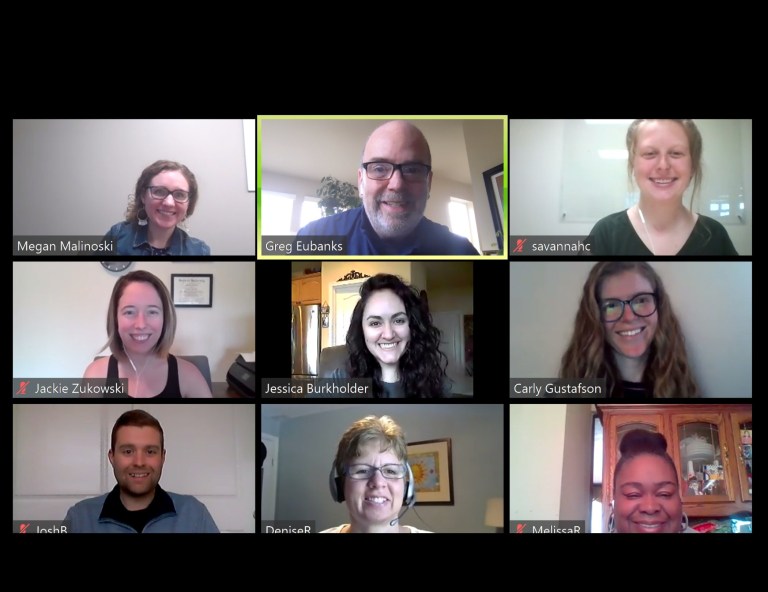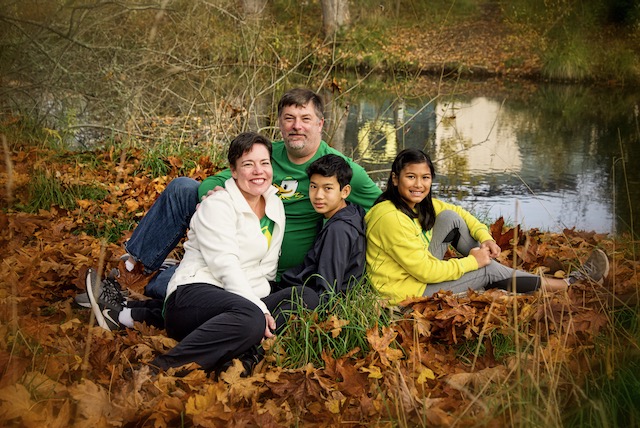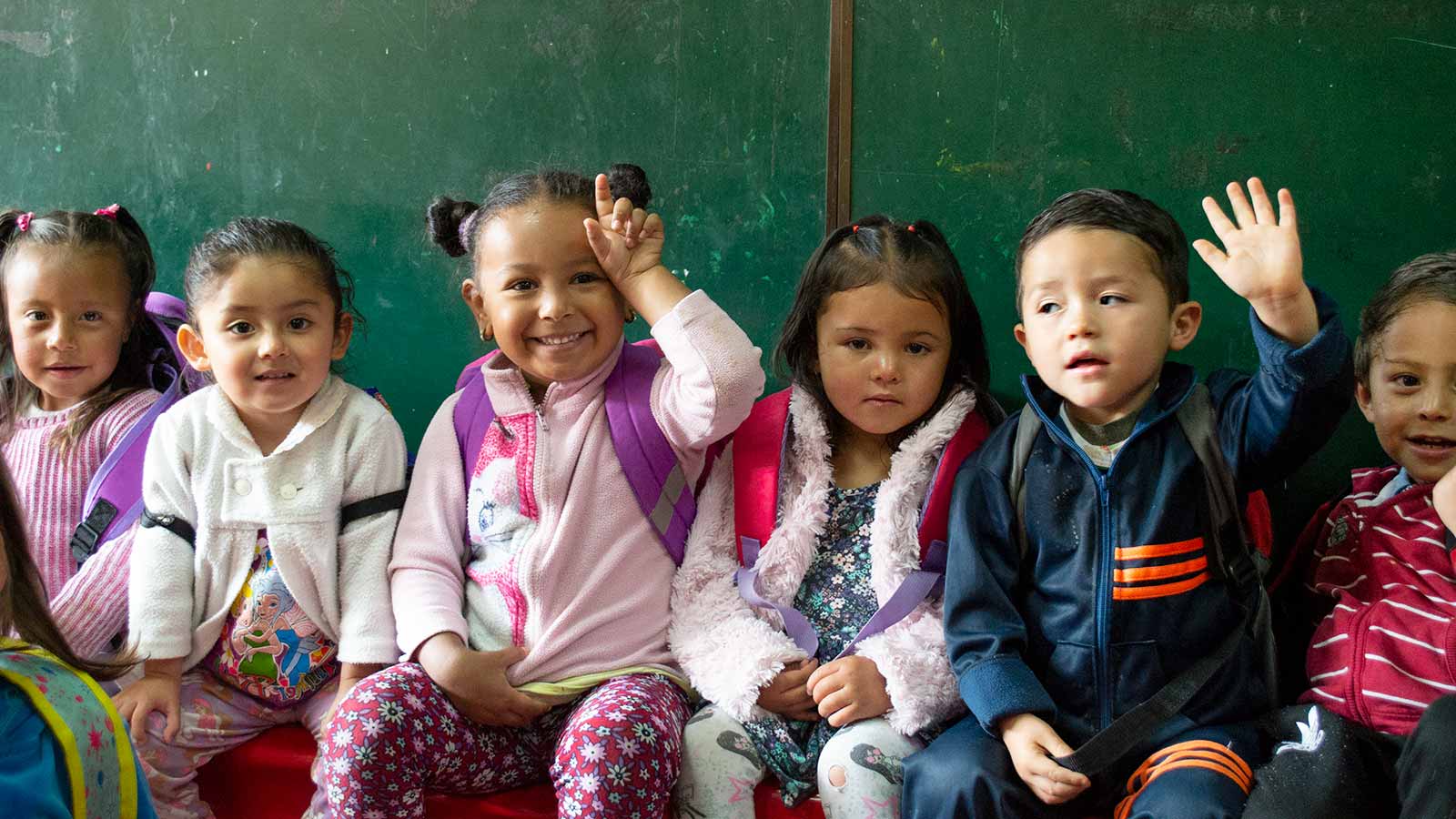When Diana got pregnant at 17, she thought her dreams — and her dreams for her children — were over. Then she discovered Holt’s partner program in Colombia, empowering both women and children through education.
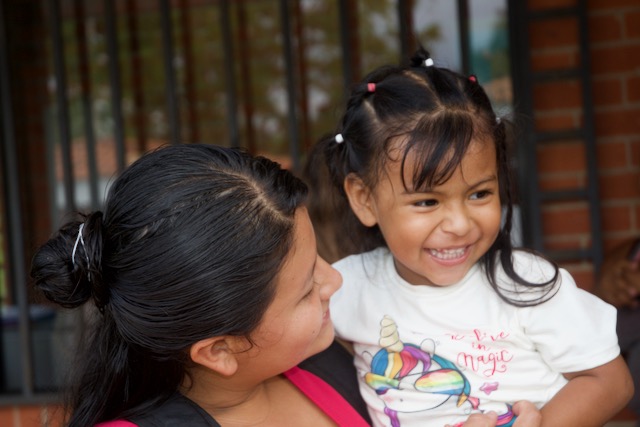
We visit Diana at her home on a warm weekday morning, and her neighborhood is quiet but for an occasional horseback rider clop-clopping along the long, straight dirt road out in front of her home. A small black dog lays in her doorway and a cat sleeps in her garden, which is lush but well-tended, with neat stone steps that descend from the road above down a story to her orange brick home. Diana and her husband built their home themselves, she says, “brick by brick.”
Growing up, Diana’s life was much less peaceful. Her family lived in Cauca, a rural part of Colombia taken over by guerrilla groups during the war. Caught in the crossfire and desperate to protect their children, many families fled to Cali, a major city in a neighboring state, or “department,” of southwest Colombia. Others left out of poverty to try to find work in the city.
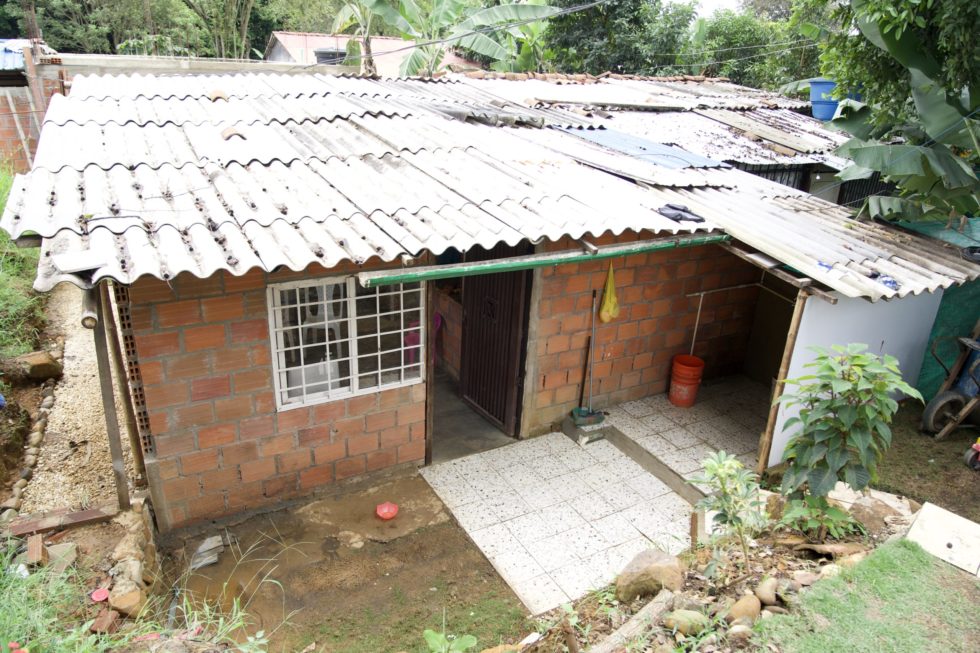
Diana moved to Cali when she was 16. Her family left not because of the violence, which didn’t affect them directly, but because there were no jobs in Cauca. They found work on a farm outside of Cali. A year later, at 17, Diana was married and pregnant with her first child.
Diana longs to give her children a more peaceful childhood than she knew growing up.
“My parents, I grew up with the them but it was a very difficult living,” says Diana, now in her early 20s. “They had problems, they used to fight a lot. I grew up in a family with conflict. I would like to give my children my best example so they won’t have to go through the same that I did.”
Today, Diana, her husband and her two children live in an unlicensed, makeshift community that sprung up during the war to accommodate families displaced by the violence in Cauca and other neighboring regions. As an “invasion sector,” their neighborhood doesn’t receive any public services and some families still live without running water or electricity. They live side by side with wealthy landowners, divided by a dirt road and a wall topped with glass.
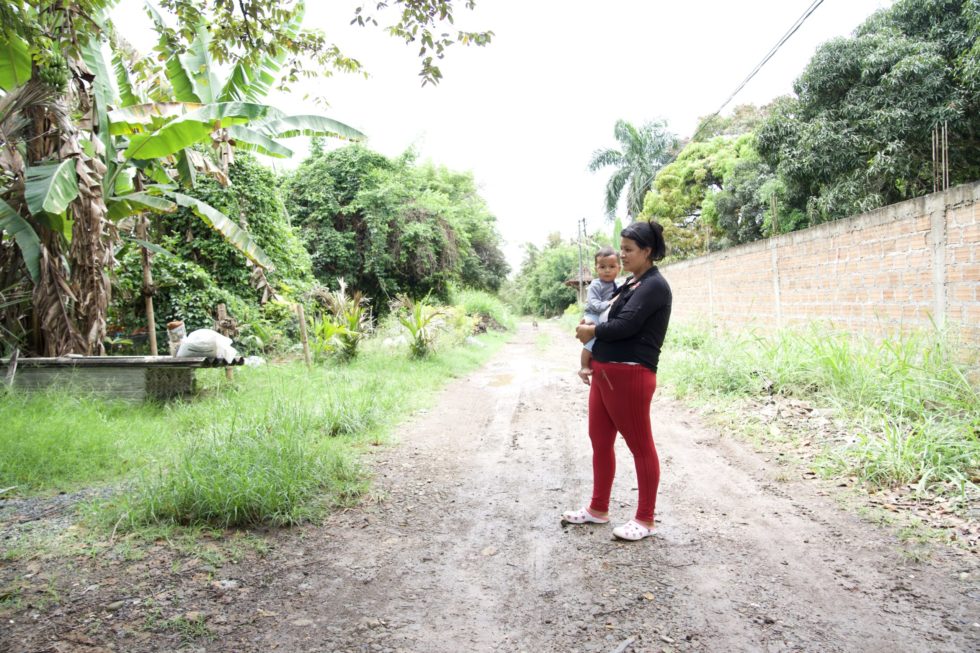
When they first arrived, many of the families in this community had no way to earn a living, and struggled to provide food and education for their children. But as they settled in the area, Holt’s local partner began an outreach campaign — offering services like free, sponsor-supported daycare where their children could receive a critical early education and a safe place to go while their parents worked during the day.
With the support of sponsors and donors, our partner also worked with young mothers like Diana — empowering them with tools and resources to better support their children, and to achieve their own goals in life. They provided personal development and job skills training, helped them finish high school, and provided positive parenting trainings to teach them about nutrition, hygiene and to help them move away from the violent dynamics that some of them grew up with and that their families internalized during the war. Behind the wall of broken glass, these women and their families have grown gardens, built homes and, most importantly, created a thriving, safe community for their children.
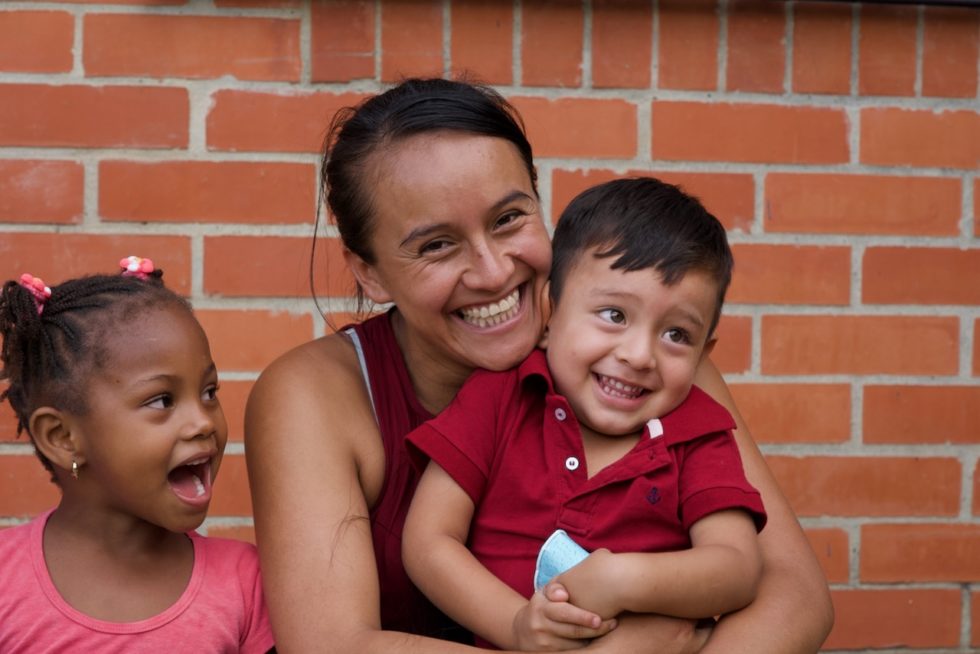
Ana Gonzalez began working with these families in 2018, when she joined our partner’s Cali branch as a staff psychologist. Although relatively new to the organization, in her short time Ana has witnessed how poverty, violence and displacement have played out in the lives of the families living in this community.
“Here in Colombia, we have a lot of people who have to relocate because of the conflict. Sometimes, they’re starting from zero to build a place to find jobs when they don’t have the preparation,” Ana says over the muted sound of children playing as she stands on the lawn outside the daycare center. “They live day to day. They don’t buy groceries for the month, but the day.”
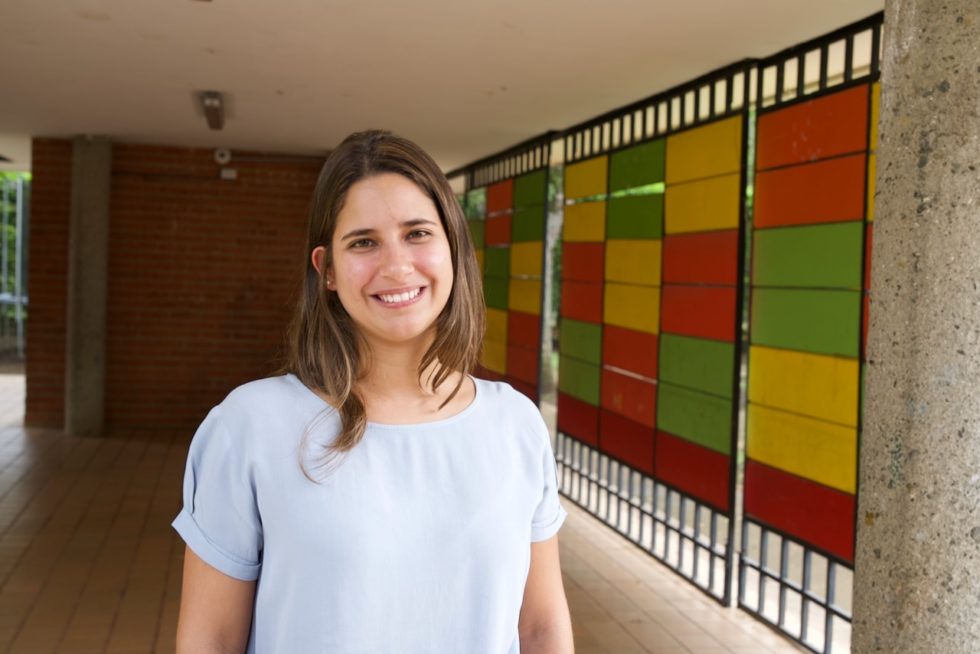
When Diana first enrolled in the program — almost exactly a year before we meet her — she was pregnant with her second child, her son. She needed a lot of help, she says. She couldn’t even go to the doctor because she had no one to watch her then 1-year-old daughter during the day while her husband was at work. She didn’t see a doctor until she was 7 months pregnant.
“I didn’t have anyone,” she says.
But when our partner accepted her daughter into the daycare program and she started the personal development workshops, Diana not only found respite from full-time caregiving — she also found people to confide in, and to offer guidance and support.
“Sometimes, conflict that you have with your partner, your husband, there’s no one to tell,” she says. “The lady that was working with us in personal development, she would teach us things and she would share with us. That has been a very big help because I had many, many issues with my husband and we were to the point that we were going to divorce. Thanks to the advice she gave us, we’re much better now.”
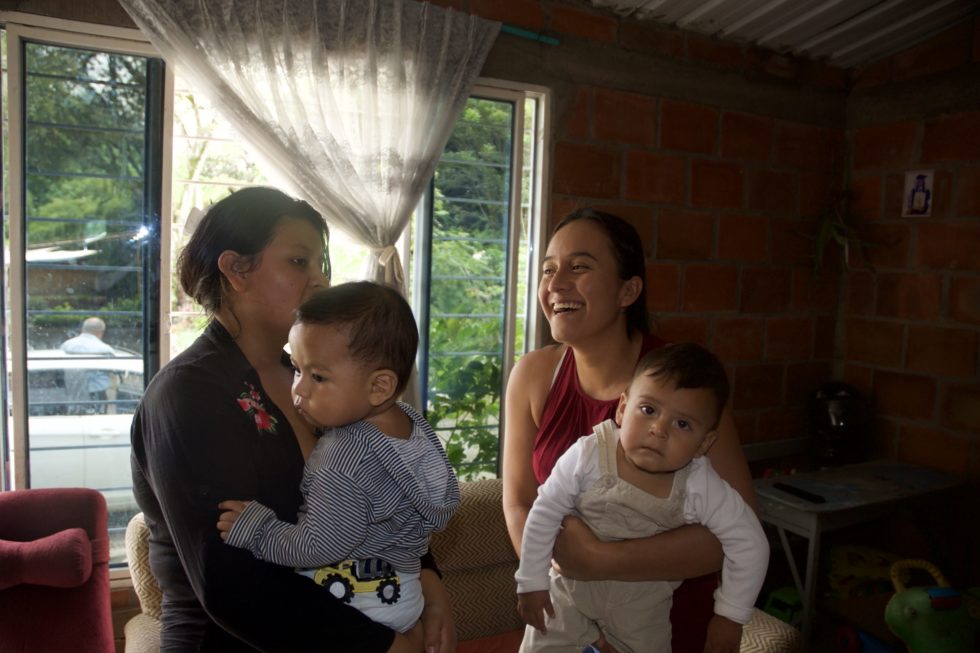
Through the parenting workshops, Diana also learned how to build a stronger relationship with her children. Like Diana, many of the parents in this community had difficult childhoods and unstable relationships with their own parents.
“They come from stories in their own families that are physical punishment, abandonment — and sometimes it’s hard to break from that and start a new way of doing things,” Ana explains.
In the positive parenting workshops, however, parents learn ways to discipline children without physical violence. “Here, we don’t tolerate physical punishment. We know that’s not right for children,” Ana says. “We teach them how to relate and how to strengthen that bond and relationship with their kids.”
Through the workshops, Diana learned the importance of play, and of creating a consistent, secure, loving bond with her children — of always being there for them.
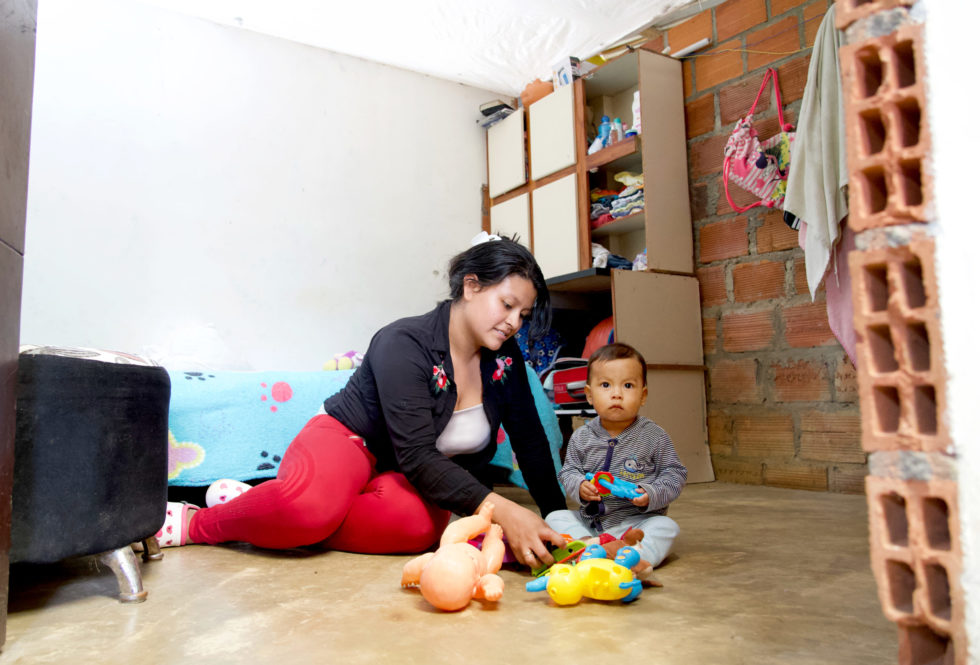
“For example, they taught us that when children come home, they want to play and if the first reaction you have is ‘No, I’m busy, go away’ … what they will receive is ‘No.’ So don’t say no to your children like that,” she explains. “If they want to play, play with something that doesn’t require a lot of time. Give them time, don’t make them feel rejected.”
What Diana’s nearly 3-year-old daughter, Carolina, loves most is on Sunday afternoons when she gets to take out all her toys and play with her mom on the floor.
“My daughter, she loves when I take out every single toy that I have and we sit down and we just play,” Diana says. “She adores that. And she likes to draw. She likes when I draw an animal and she colors the animal.”
Carolina also loves it when her mom sings lullabies.
“And my little boy, my baby boy,” Diana says, “he applauds.”
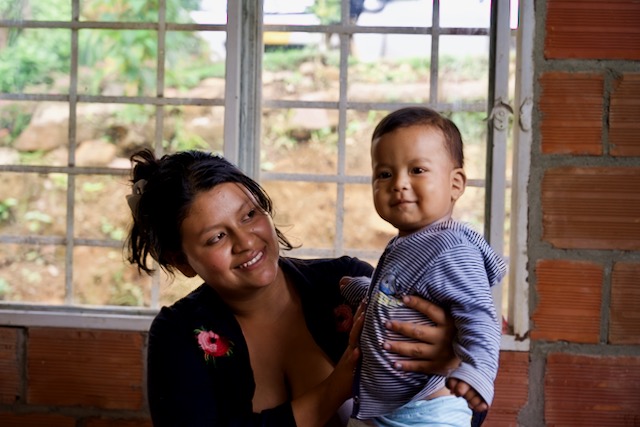
In the year since Carolina started attending the daycare program at Bambi, Diana has seen a dramatic change in her daughter. Carolina has dark eyes and hair like her mom, and a bit of a skeptical expression that turns into full blown joy when her mom picks her up.
“She was very shy when she went for the first time,” Diana says of Carolina. “She didn’t speak. At home, she hid herself when people came into the house.”
Ana says that sometimes, shyness can be a sign of trouble at home.
“They repeat what they see. They repeat the model. For example, if the environment is very aggressive or tense, they tend to be very shy and don’t want to interact with others. Or on the other hand they are aggressive with others,” she says.
After a year of attending sponsor-supported daycare, however, Carolina has become much more confident. Diana was surprised at everything she learned how to do.
“She can count up to ten. She draws. She knows lots of songs. She sings a lot. I’m surprised by everything she does!” Diana says. “She knows how to tie a bow. She found a piece of tissue and she did a very nice bow. I was surprised!”
Diana says she and her husband never could have afforded to send their daughter to preschool without the help of sponsors and donors.
“I would have never been able to pay for such a place where they would teach her so many things. I wouldn’t have been able to send her anywhere,” she says.
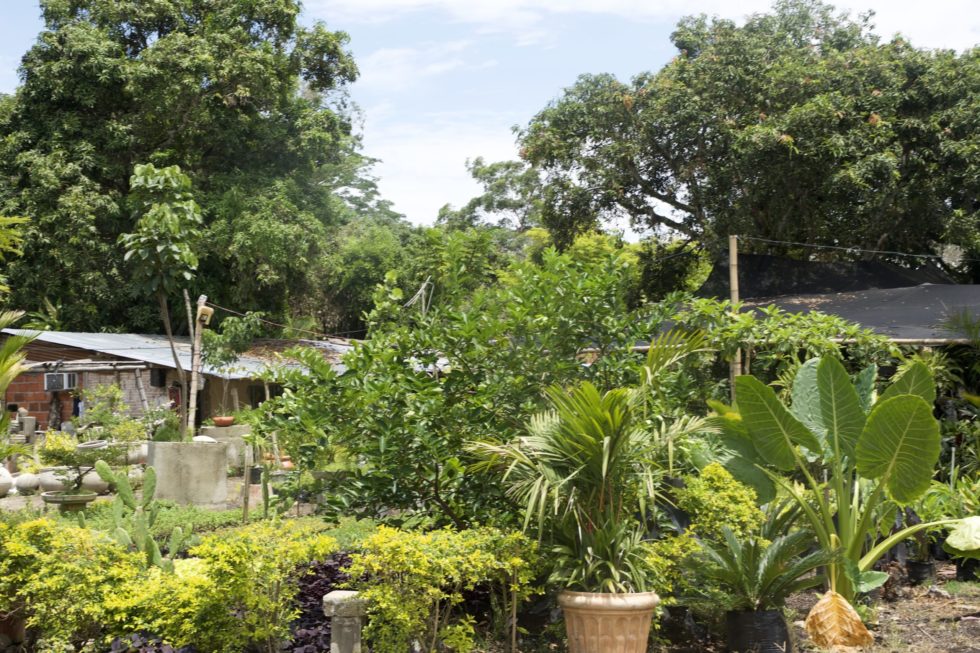
Diana’s husband earns very little working in construction, and Diana never finished high school. When she got pregnant the first time, at 17, she hoped to continue studying. But with limited resources and no outside help or support, all her time and energy went toward caring for her newborn daughter. And within a couple years, she was pregnant again.
“With the children, they just stop. Your dreams, they just stop,” she says. “You cannot move forward with your dreams.”
Through our partner, however, Diana learned that she could work to finish high school while still at home.
“Via Whatsapp, the teachers are in contact with you, they give you materials,” Diana says of the social networking platform used in many countries outside the U.S. “It’s like an online training. At the end, they do an evaluation to see if you can pass your degree.”
Although continuing her education is a personal dream, since having children, it has also become about them — about giving them the best future possible.
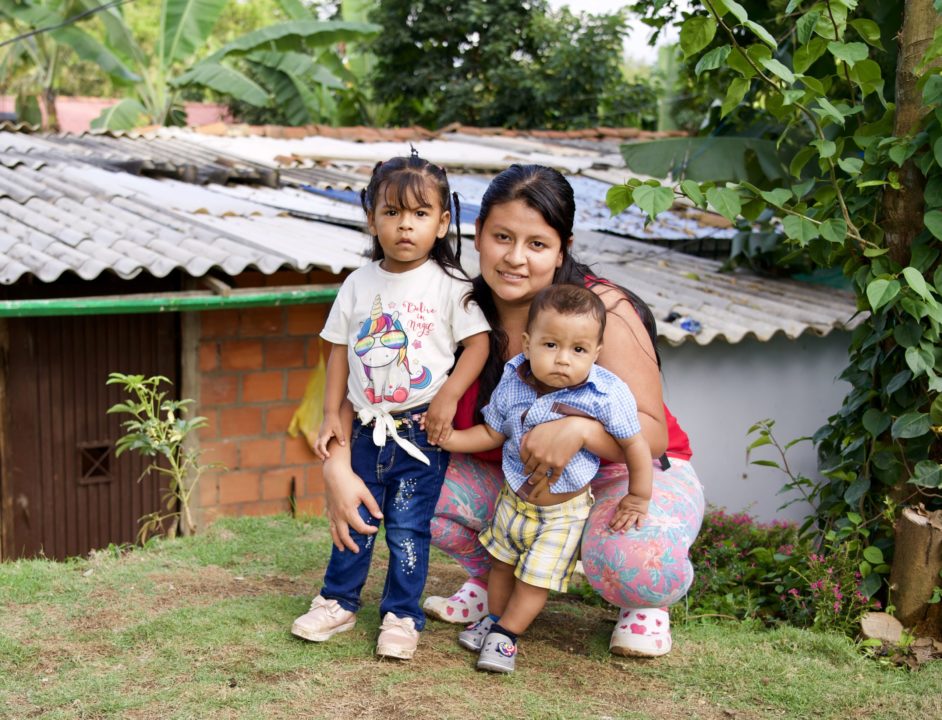
“I would love to give them everything, that’s why I want to study, prepare myself,” she says. “So they will have a better quality of life.”
By becoming educated herself, she gives her kids her “best example.”
“I would give them the world. I want them to study, to have a career,” says Diana. “Not to follow my steps that I couldn’t finish high school … If you don’t finish your studies, it’s hard. I want them to study, to be somebody in life.”
Through the sponsor and donor-supported programs of our local partner, both Diana and her daughter are receiving the education and empowerment they need — not only to escape the pattern of poverty and conflict that Diana grew up with in her family, but also to assert themselves as strong, independent, capable women.
Among the families our local partner works with, the burden of caregiving and household responsibilities often falls solely on women, which is a major source of conflict between parents.
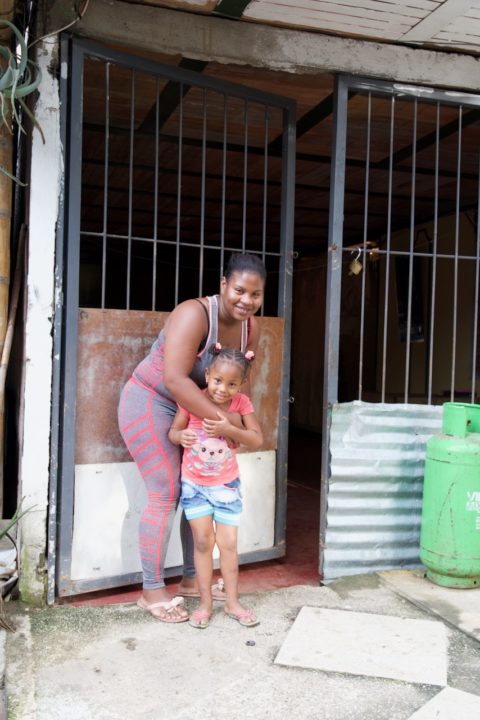
“Here in Colombia, [roles] are still very traditional so we want them to break that,” explains Ana, who encourages the parents to communicate their feelings and to share responsibilities inside the home. “Because they are a woman, they don’t have to just stay in the house … We can help them study and work and find contexts that aren’t their own houses.”
While some women are still working to graduate high school, others are pursuing professions through training programs supported by sponsors and donors. “They can study beauty, cooking, nursing, different stuff depending on their interests,” Ana says of the moms in the program, some of whom are single parents struggling to support their families on their own. “Also … if they have some idea of a business, we also support that idea. For example, we have people that sew. One mother has an ice cream shop.”
Once Diana’s son is old enough to walk, he can also start attending the daycare program, which will free up more time for her to study. When we meet her, she is gathering the final documents she needs to start the remote high school equivalency program. And once she graduates, she hopes to study systems IT.
Diana bounces her son in blue and white striped pajamas, awake from a nap and sitting in his mom’s arms with sleepy eyes as we ask her how she feels about the support she has received through our partner program. “I had never seen anywhere else with this type of help. Amazingly good,” she says. “To see my daughter, how she started and how she is doing now, she has learned so many things. They are helping me also as a mom.”
About the change in her daughter, she says, “I feel joy. She’s very intelligent. The first time she sees something, she records that in her memory. It stays there. I’m so very excited. And very thankful to the foundation that they accepted me and that I was able to give my daughter that chance.”
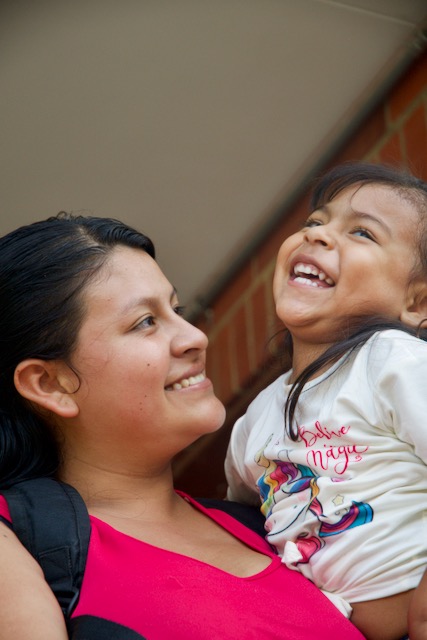
But as Ana says, it’s not just the children who change through the program. It’s also the parents.
“They have evolved a lot,” she says. “Just physically, they care about themselves. The way they dress, the way they come here. Little things like looking you in the eyes. When they come the first time, they are very shy and don’t look you in the eyes and are unable to talk to you about the problems. But then they’re able to talk … I can see that they’re having a big change.”
Most of all, they are able to express their worries and fears, their hopes and dreams, and commit to creating change in their lives and their homes for the sake of their kids. With the support of sponsors and donors, and a whole team of professionals helping them through Holt’s local partner in Cali, they are working for something more — something better.
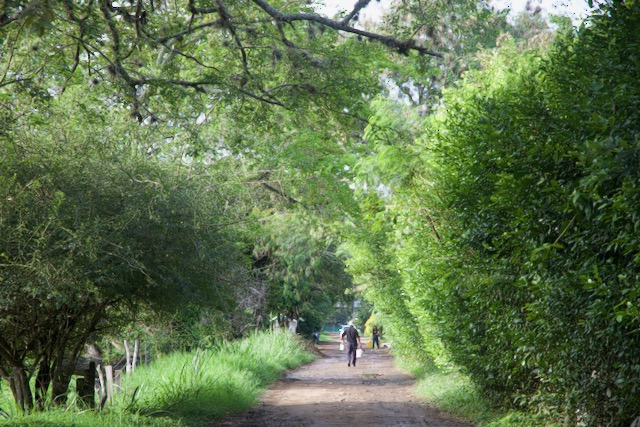
“They’re worrying about their children and want the best for them. They know the importance of their children having an education, that they receive love, and that they are affectionate with them,” Ana says, standing behind the wall that divides the rich from the poor, the haves and have nots in this makeshift community — this “invasion sector” — in southwest Colombia. “It’s not just giving them food. It’s more than that.”
Robin Munro | Managing Editor
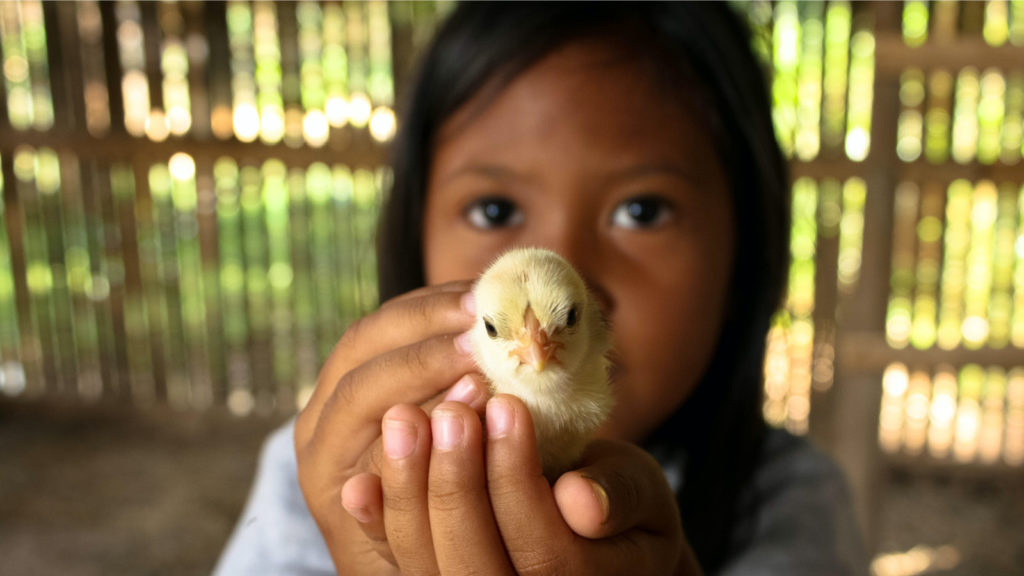
Give a Gift of Hope
Give a lifesaving or life-changing tangible gift to a child or family in need. And this holiday season, give in honor of a loved one and they’ll receive a free card!
